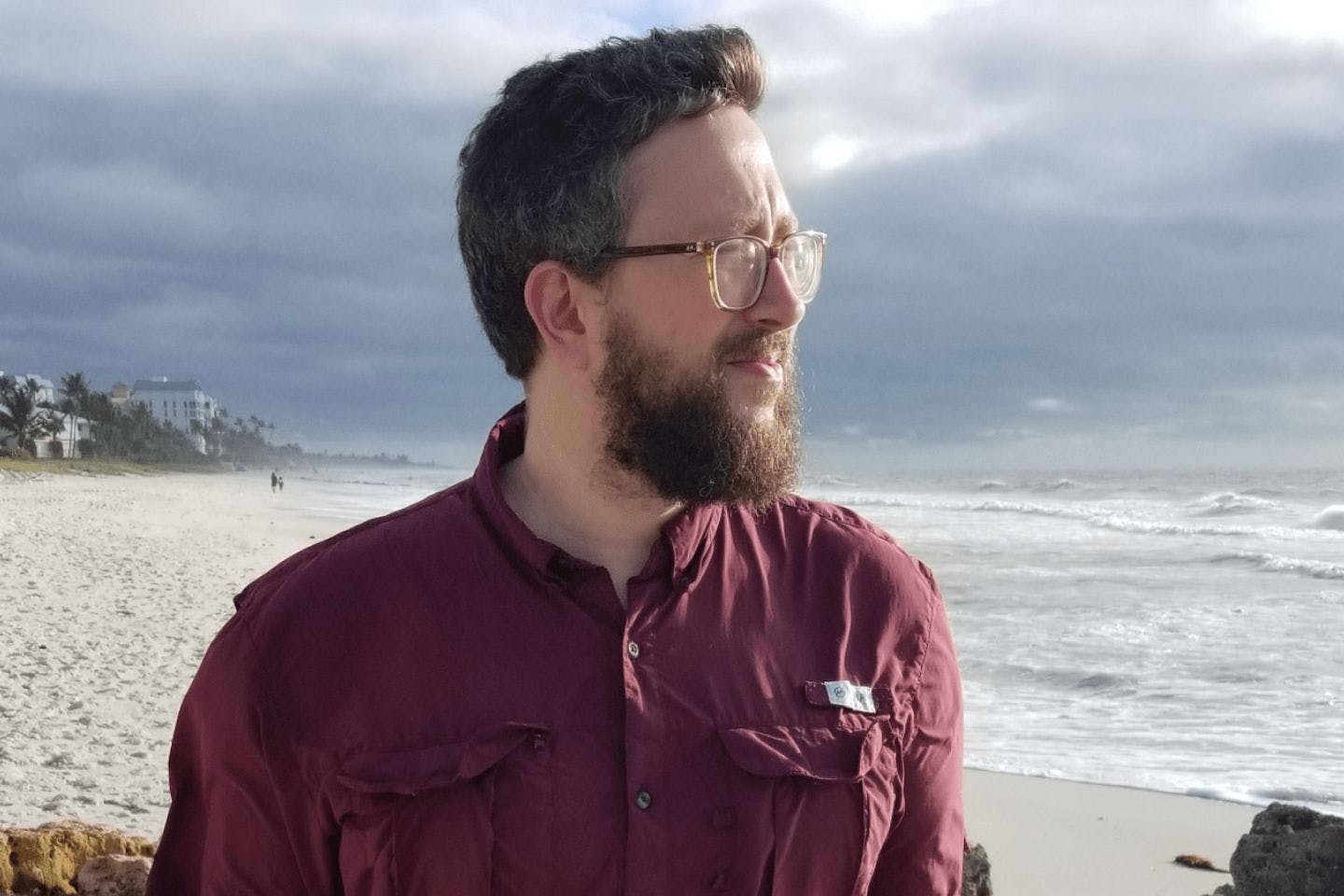
Psychology
This story was originally shared on Research Matters.
In fall 2021, The New School for Social Research welcomed Sam Winer as an associate professor of psychology. A clinical psychologist, Winer uses novel methods and theory to attempt to better identify, understand, and treat anhedonia, depression, and anxiety.
Winer is a self-admitted “longtime admirer of The New School” and its historical and current emphasis on social justice, which is also a focus in his own research, teaching, and service to his discipline. In the NSSR Psychology department in particular, Winer admires the emphasis on “depth hypotheses—what are some of the motivating factors for why people behave as they do, what are some of the repetitive dynamics that can motivate people to act in certain ways. That’s where a lot of my work, which examines the interface of cognitive and motivational explanations of depression, fits in.” He also appreciates the department’s “strong background in empirical research” and “open and inclusive consideration of a wide variety of philosophical ideas.”
Winer’s recent publications similarly display a range of approaches to the study and treatment of depression and anxiety. He became interested in these conditions as a graduate student at the University of Illinois, Chicago, and continued with that research as an assistant and then an associate professor at Mississippi State University (MSU). There he and the students in his Emotional Processes and Experimental Psychopathology Lab focused on finding cognitive and affective predictors of distress and dysfunction. As principal investigator, he received more than $1 million in grants from the National Institute for Mental Health for research investigating Reward Devaluation Theory—research that led the Association for Psychological Science to name him a 2018 APS Rising Star.
Understanding Reward Devaluation Theory
Reward Devaluation Theory (RDT) explores why and how some depressed individuals come to avoid potentially hopeful and positive information. Research into depression has “focused primarily on negative things that you might be threatened by or have difficulty disengaging from,” says Winer. “There’s been less of an emphasis on how positive information is processed. It’s been known that depressed individuals may not have the same normative bias toward positive information” or rewards as people who are not depressed.
What RDT and Winer’s reanalyses of data show is that “it’s not just a lack of ‘normal’ value or valuation of positivity, however. Some depressed people seem to avoid potential positivity. Think of it like The Shawshank Redemption—it’s not that I’ve given up on hope; hope is a dangerous thing,” explains Winer. Many societal factors could feed these biases toward positivity, and Winer says that almost infinite considerations of culture and context can inform why people come to develop these biases.
At NSSR, Winer is launching a lab with graduate students as well as New School undergraduates to continue to examine RDT and the cognitive and emotional mechanisms that can help explain how and why some individuals develop these types of biases toward positivity and hopefulness. He’s also looking into treatment choice—why individuals do or do not go into treatment for anxiety and depression—and a more general, endemic fear of positivity and hopefulness throughout the COVID-19 pandemic. “People are trying to decide when to trust and hope again as we continue to resume normal life after the worst of the pandemic. I’m excited to see how understanding of reward devaluation will help inform how we all can fully let positivity back into our lives again.”
One of the methodological approaches Winer sees value in for RDT research is network analysis, which can help show how symptoms of psychopathology connect to one another. “It might be that people have an essence inside of them that is depression,” he explains. “But it might also be the case that the complex connectivity of symptoms over time forms a feedback loop that is the depression for that individual person.” Winer gives an example of a hypothetical person with depression who stops sleeping regularly because of a loss in that person’s life. That lack of sleep keeps them from enjoying things, which leads them to be sad, which perpetuates the inability to sleep. But even when the loss goes away, the feedback loop keeps functioning, and that person remains depressed. In particular, Winer will be using temporal network analysis—examining the way networks organize and change over time—to look at clinical and experimental data sets to see how they connect and “pulse.”
Outside of the lab, Winer is excited to step into teaching at both the undergraduate and graduate levels. An award-winning professor several times over at MSU, Winer is teaching Systems of Psychotherapy, an undergraduate course at Eugene Lang College for Liberal Arts, in fall 2021. In spring 2022, he’ll be teaching a core Clinical Theory and Technique: Cognitive Behavioral Therapy course to graduate students at NSSR and Emotions to undergraduates at Lang.
“Teaching is, to a large extent, why I got into this business,” Winer says. “I love being able to teach both at a school for social research and also in a liberal arts college and to be able to engage with critical theory and critical considerations of psychology in a progressive atmosphere.”